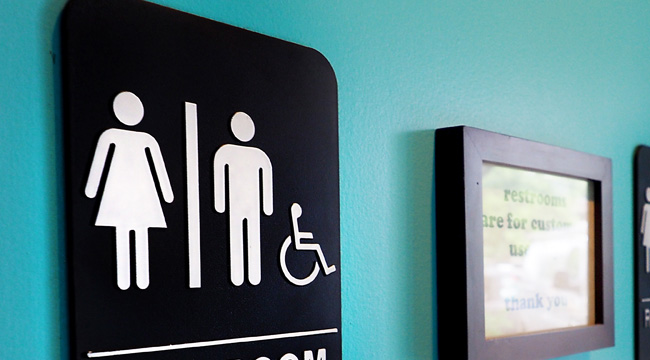
Two states, Virginia and Texas, are on the brink of introducing bills in their states that would potentially limit rights of transgender people. The language in each bill is a bit different, but both would require people to use restrooms based upon their sex at birth. Both bills are similar to the wave of legislature that arrived last year over 20 states, including Texas (which is hoping to add even more restrictive language).
In Virginia, the bathroom bill (Physical Privacy Act) introduced by Del. Robert G. Marshall (R-Prince William), would regulate transgender people from using restrooms at highway rest stops, government buildings, and schools. However, the proposed law does not prohibit a government entity from offering a private accommodation or a “single-occupancy restroom.” Marshall said this is merely an issue of safety and not discrimination, as he said he fears anyone will just freely enter a bathroom: “Some guys will use anything to make a move on some teenage girls or women. Mere separation of the sexes should not be considered discrimination.”
Over in Texas, the state’s bathroom bill (Women’s Privacy Act) is being introduced with a “safety” justification as well, but the bill mainly states that men are forbidden from entering a women’s restroom. Lieutenant Governor Dan Patrick said the bill is a top priority, and he echoed Marshall’s sentiments that the state is only looking out for people’s safety:
“Transgender people have obviously been going into the ladies’ room for a long time, and there hasn’t been an issue that I know of. But if laws are passed by cities and counties and school districts that allow men to go into a bathroom because of the way they feel, we will not be able to stop sexual predators from taking advantage of that law, like sexual predators take advantage of the internet.”
Transgender rights have been under fire recently, after North Carolina (and many other states) spent 2016 arguing over where people can go to the bathroom. The two new bills are still in their infancy and may not ultimately be passed, but the subject clearly isn’t over. Meanwhile, Donald Trump has been coy about his feelings toward the LGBT community, which only brings more ambiguity to whether future bills like these could pass.
(Via The Washington Post & ABC-KVUE)
